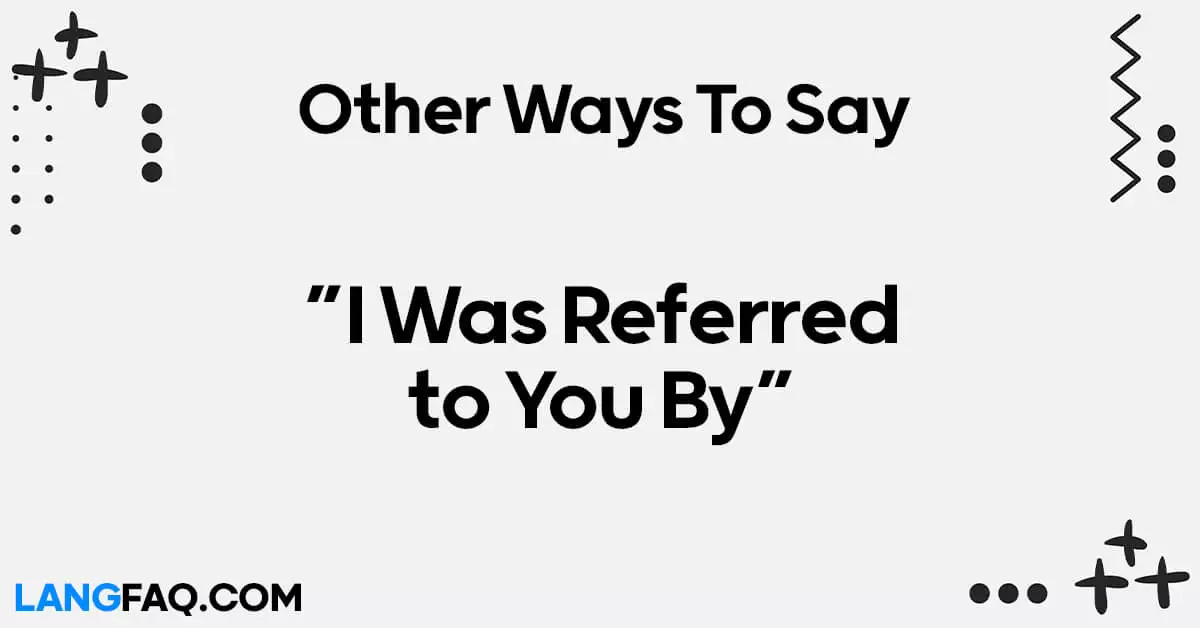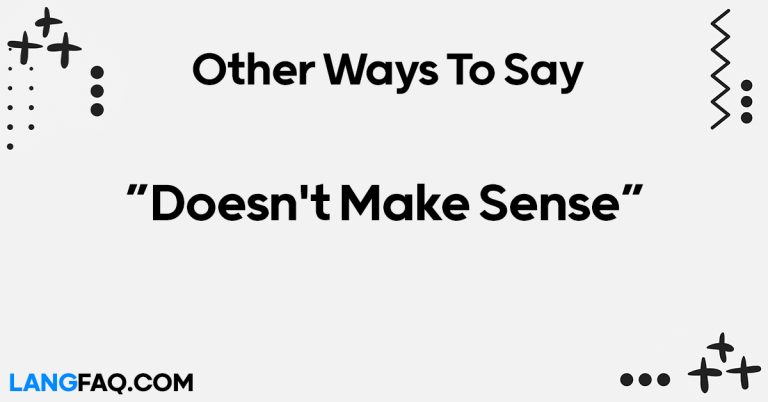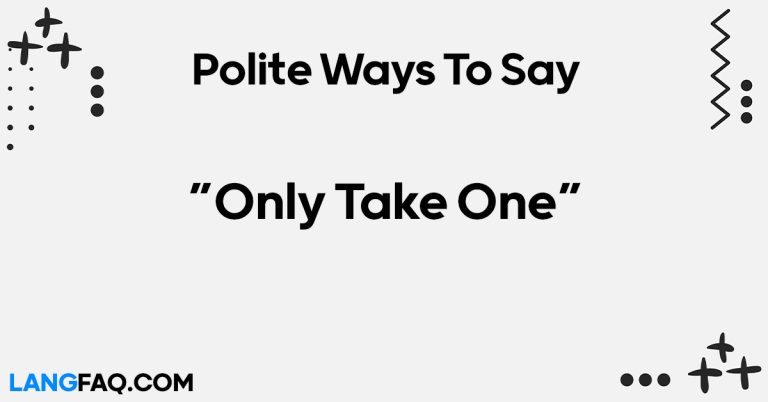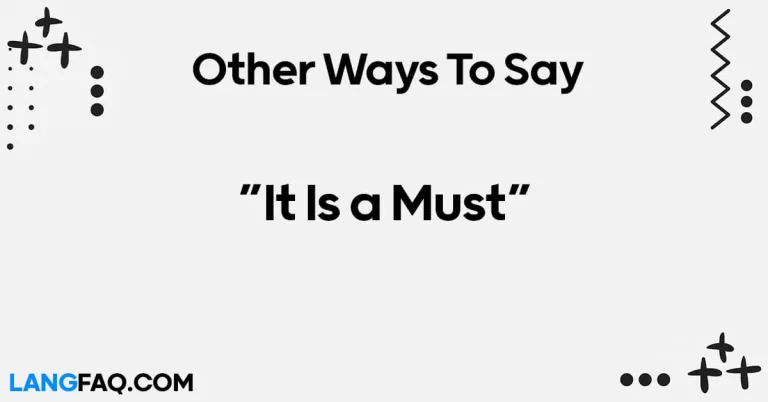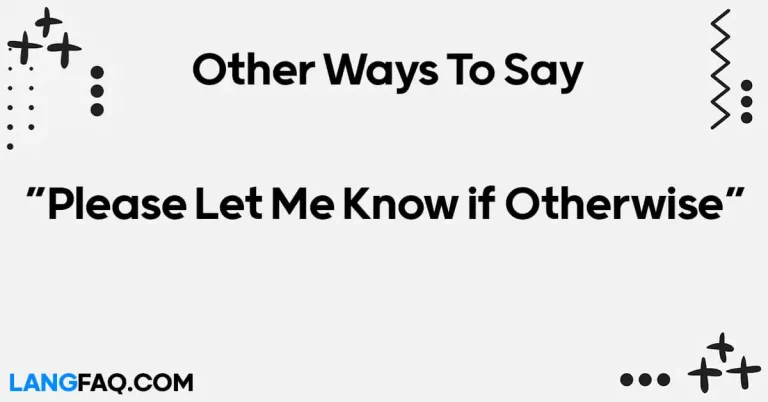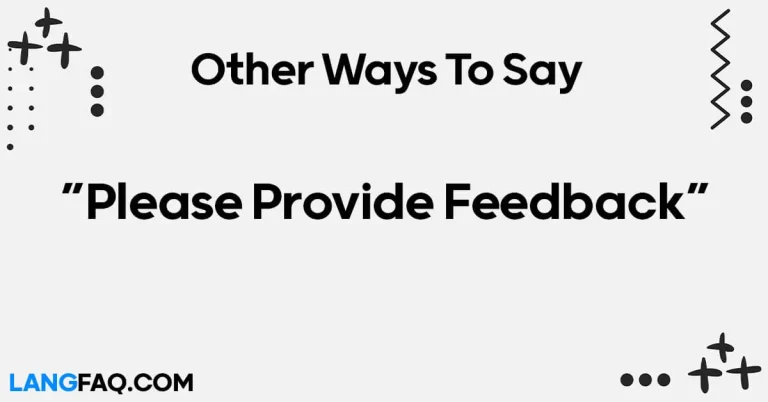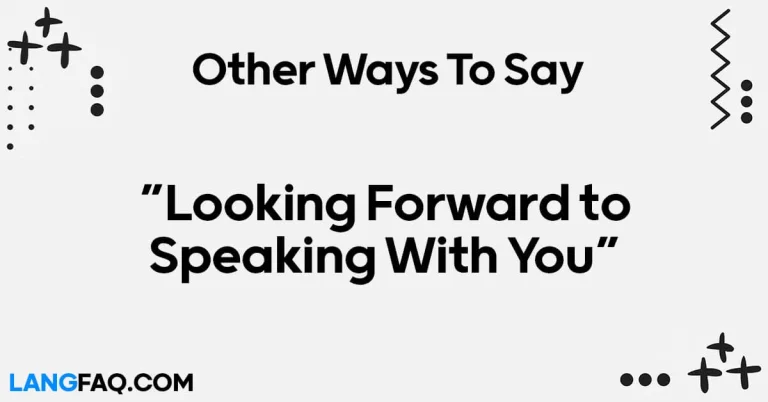In a professional setting, having a referral can significantly increase your chances of getting noticed and securing an opportunity. It shows that you have a mutual connection and have been recommended by someone who is familiar with your work or character.
However, mentioning a referral can also be challenging, as you want to make a good impression and not come across as too pushy or overconfident.
So, why is it important to mention a referral? Well, it adds credibility to your introduction and can potentially open doors for you. It also shows that you have done your research and have a clear understanding of who you are reaching out to. A referral can also help establish trust and create a positive first impression.
When mentioning a referral, it is essential to do so in a professional and respectful manner. Here are two ways to mention a referral:
- Direct Approach: This approach involves directly stating the name of the person who referred you in your introduction. For example, “I was referred to you by [Name].”
- Indirect Approach: In this approach, you do not mention the person’s name but instead allude to them in your introduction. For example, “I was given your name by a mutual contact who highly recommended I reach out to you.”
Aside from the direct and indirect approach, there are various alternatives to the phrase “I was referred to you by.” Some other ways to mention a referral in a professional setting are:
- “Our mutual contact, [Name], recommended I reach out to you.”
- “I heard about your company/services from [Name].”
- “I was given your name by [Name].”
- “I was introduced to you by [Name].”
- “I was informed about you by [Name].”
- “I was directed to you by [Name].”
- “I was referred to you through [Name].”
- “I was recommended to you by [Name].”
- “I was connected to you by [Name].”
- “I was referred to you via [Name].”
- “I was suggested to contact you by [Name].”
- “I was pointed in your direction by [Name].”
Key Takeaways:
A referral can greatly increase your chances of success in a professional setting. There are both direct and indirect ways to mention a referral. “I Was Referred to You By” can be replaced with phrases such as “Our mutual contact recommended”, “I heard about your company from”, or “I was connected to you by”.
Why is it Important to Mention a Referral?
Mentioning a referral is crucial because it establishes credibility, builds trust, and increases the likelihood of a positive response. By mentioning a referral, you are leveraging the existing relationship and trust that the referrer has with the person you are reaching out to. This instantly gives you an advantage and makes it more likely that your message will be heard and seriously considered.
Additionally, referrals serve as social proof, demonstrating that others have had a positive experience with you or your business. This can significantly impact the recipient’s decision-making process. According to a survey, 84% of B2B buyers begin their purchasing process from a referral, emphasizing the importance of utilizing referrals in business.
How to Mention a Referral in a Professional Setting?
In the professional world, networking and referrals are crucial for success. But how do you mention a referral in a professional setting? There are two main ways to go about it: the direct approach and the indirect approach. Each method has its own strengths and it is important to know when to use which one.
In this section, we will discuss these approaches in detail and provide tips on how to effectively mention a referral in a professional setting.
1. Direct Approach
- When using a direct approach to mention a referral in a professional setting, follow these steps:
- Start with a polite and professional greeting to the recipient.
- Mention the name of the person who referred you and their relationship to you or the recipient.
- Explain why the referral thought it would be beneficial for you to reach out to the recipient.
- Express your interest in connecting or working with the recipient.
- Offer to provide any additional information or answer any questions they may have.
Fact: According to a study, referrals have a higher rate of success in getting hired compared to other job search methods.
2. Indirect Approach
When mentioning a referral in a professional setting, taking an indirect approach can be effective and less assertive. Here are some steps to follow:
- Start with a polite introduction, mentioning your interest in connecting.
- Provide context by mentioning a common interest or connection you have with the person.
- Transition to mentioning the indirect approach of a referral, such as, “I recently had a conversation with someone who spoke highly of your work.”
- Express your admiration for their accomplishments or expertise.
- State your purpose for reaching out and how you believe they could provide valuable insights or opportunities.
Remember to be genuine, respectful, and concise in your approach. By adopting an indirect approach, you can establish a connection based on shared interests and trust.
What Are Some Alternatives to “I Was Referred to You By”?
When reaching out to a new contact, it’s common to mention the person who referred you. However, using the same phrase over and over can become repetitive and lose its impact. In this section, we will explore 12 alternative ways to say “I was referred to you by”, providing you with a variety of options to choose from. Each alternative conveys the same message but with a unique and personalized touch. Let’s discover how you can make a memorable first impression while expressing your referral in a fresh and creative way.
1. “[Name] recommended that I get in touch with you.”
Context: This is a formal way to mention a referral in professional settings.
Example Sentence: “John recommended that I get in touch with you regarding the upcoming project collaboration.”
Variations:
- “[Name] suggested I reach out to you.”
- “[Name] referred me to you.”
Tips: Using “recommended” in this context implies that the referrer has spoken highly of you to the person you’re contacting. It conveys professionalism and respect for their opinion.
2. “[Name] suggested I reach out to you.”
Context: This phrase is suitable for both formal and informal settings.
Example Sentence: “Sarah suggested I reach out to you for advice on entering the tech industry.”
Variations:
- “[Name] recommended that I contact you.”
- “[Name] advised me to get in touch with you.”
Tips: “Suggested” is a versatile word that can be used in various contexts, making it a great choice for both professional and casual conversations.
3. “[Name] referred me to you.”
Context: This is a straightforward and formal way to convey a referral.
Example Sentence: “David referred me to you for information about the available job positions.”
Variations:
- “[Name] directed me your way.”
- “[Name] pointed me in your direction.”
Tips: When using “referred,” be concise and clear about the purpose of your referral to make your communication more effective.
4. “I was introduced to you by [Name].”
Context: This phrase is suitable for situations where you’ve been personally introduced by a mutual acquaintance.
Example Sentence: “I was introduced to you by Emily at last month’s networking event.”
Variations:
- “Emily introduced me to you.”
- “I had the pleasure of meeting you through Emily.”
Tips: Mentioning a specific event or context can help the person you’re reaching out to remember the introduction.
5. “[Name] told me to contact you.”
Context: This is a direct and informal way to mention a referral.
Example Sentence: “Alex told me to contact you regarding the marketing campaign.”
Variations:
- “[Name] informed me to get in touch with you.”
- “[Name] said you were the person to speak to.”
Tips: “Told me” is a straightforward phrase that can be used in various informal situations, such as when seeking advice from a colleague.
6. “[Name] directed me your way.”
Context: This phrase is suitable for formal and professional contexts.
Example Sentence: “James directed me your way for information about the conference.”
Variations:
- “[Name] guided me to contact you.”
- “I was directed to you by James.”
Tips: Using “directed” implies a clear and purposeful referral, which can be especially effective in professional settings.
7. “[Name] mentioned you as someone I should connect with.”
Context: This is a polite and respectful way to convey a referral in professional settings.
Example Sentence: “Linda mentioned you as someone I should connect with to explore business opportunities.”
Variations:
- “[Name] spoke highly of you as a valuable connection.”
- “I heard about you through Linda as a potential collaborator.”
Tips: This phrase implies that the referrer believes you and the person you’re contacting would benefit from connecting, which can create a positive impression.
8. “[Name] pointed me in your direction.”
Context: This is a casual yet clear way to mention a referral.
Example Sentence: “Michael pointed me in your direction for advice on my startup venture.”
Variations:
- “[Name] steered me toward you.”
- “I was directed to you by Michael.”
Tips: Using “pointed me” adds a friendly touch to your referral, making it suitable for various contexts, including informal ones.
9. “I heard about you through [Name].”
Context: This is an indirect way to mention a referral in casual settings.
Example Sentence: “I heard about you through Mark, and he spoke highly of your expertise in web development.”
Variations:
- “Mark mentioned you, and I wanted to connect.”
- “I’ve been hearing good things about you from Mark.”
Tips: This phrase allows for a more relaxed and conversational approach while still acknowledging the referral source.
10. “[Name] connected us.”
Context: This is a concise and neutral way to convey a referral.
Example Sentence: “Emily connected us, and I wanted to discuss potential collaborations.”
Variations:
- “We were connected by Emily.”
- “Emily facilitated our connection.”
Tips: This phrase keeps the focus on the connection itself and is suitable for both formal and informal situations.
11. “[Name] advised me to get in contact with you.”
Context: This is a formal and respectful way to mention a referral.
Example Sentence: “Tom advised me to get in contact with you regarding the research project.”
Variations:
- “Tom recommended that I reach out to you.”
- “[Name] suggested I contact you for guidance.”
Tips: Using “advised” conveys that the referrer has given careful thought to the recommendation, which can enhance your credibility.
12. “[Name] put me in touch with you.”
Context: This phrase is suitable for situations where the referrer actively facilitated the connection.
Example Sentence: “Rebecca put me in touch with you to discuss potential collaborations.”
Variations:
- “I was introduced to you by Rebecca.”
- “[Name] connected us for a reason.”
Tips: “Put me in touch with” emphasizes that the referrer played an active role in making the connection, which can be valuable information to convey.
13. “Our Mutual Contact, [Name], Recommended I Reach Out to You”
When mentioning a referral in a professional setting, it is important to be direct and clear about the mutual contact who recommended reaching out. Here are some alternatives to saying “I was referred to you by [Name]”:
- “Our mutual contact, [Name], recommended I reach out to you.”
- “I heard about your company/services from [Name].”
- “I was given your name by [Name].”
- “I was introduced to you by [Name].”
- “I was informed about you by [Name].”
- “I was directed to you by [Name].”
- “I was referred to you through [Name].”
- “I was recommended to you by [Name].”
- “I was connected to you by [Name].”
- “I was referred to you via [Name].”
- “I was suggested to contact you by [Name].”
- “I was pointed in your direction by [Name].”
Using these phrases can effectively convey that someone recommended reaching out to establish a professional connection.
14. “I Heard About Your Company/Services from [Name]”
When mentioning a referral in a professional setting, one way to do so is by saying, “I was referred to your company/services by [Name].” This approach shows that you have a connection with someone who has recommended you to reach out. It establishes credibility and can pique the recipient’s interest.
Other alternatives to mentioning a referral include stating that you were given their name, introduced to them, or recommended to contact them by someone.
Using these phrases can help establish a personal connection and increase the likelihood of a positive response. Remember to always express gratitude for the referral and mention specific details about how the referral source spoke highly of their experiences with the recipient.
15. “I Was Given Your Name by [Name]”
When mentioning a referral in a professional setting, there are various alternatives to saying, “I was referred to you by [Name].” One option is to say, “I was given your name by [Name],” which indicates that someone specifically provided you with the person’s name. Other alternatives include saying, “I heard about your company/services from [Name],” or “I was introduced to you by [Name].”
These variations allow you to acknowledge the referral while using different phrasing. Remember, mentioning a referral can help establish credibility and build rapport in professional interactions.
In addition, you may also choose to use phrases such as “I was connected to you by [Name]” or “I was recommended to you by [Name].” These alternatives maintain a similar tone and purpose of conveying a referral.
Ultimately, how you mention a referral will depend on your personal style and the context of your professional relationship. It’s important to select language that feels authentic and aligns with your communication style.
16. “I Was Introduced to You by [Name]”
When mentioning a referral in a professional setting, it is best to take a direct and straightforward approach. For example, stating “I was introduced to you by [Name]” immediately establishes the connection between yourself and the person you are reaching out to.
This approach demonstrates respect for the referral source and shows that the introduction was intentional.
It also helps the person being referred to recognize the connection and potentially prioritize the interaction. By using this direct approach, it becomes easier to establish a rapport and build trust with the person you are reaching out to.
Don’t forget to express your gratitude to the person who made the introduction and thank them for their assistance.
17. “I Was Informed About You by [Name]”
When mentioning a referral in a professional setting, you can use the phrase “I was informed about you by [Name].” This lets the person know that you have received information about them from someone else. It shows that you have a mutual contact and potentially establishes credibility.
By using this approach, you can begin the conversation positively and increase the chances of a favorable response. Remember to personalize your message and explain how the referral relates to your reason for contacting them.
18. “I Was Directed to You by [Name]”
When mentioning a referral in a professional setting, using the phrase “I was directed to you by [Name]” can be an effective way to establish a connection. Here are some steps to follow:
- Start with a polite greeting, addressing the recipient by their name.
- Mention the name of the mutual contact who directed you to the recipient.
- Explain how the mutual contact spoke highly of the recipient or recommended reaching out.
- Share your reason for contacting the recipient and express your interest in connecting or discussing a specific opportunity.
- Close the message with a courteous closing and provide your contact information.
True story: I recently applied for a job and was directed to the hiring manager by a colleague. I used the phrase “I was directed to you by [Name]” in my email. The referral helped establish a connection, and I was invited for an interview. It showcased the value of networking and the impact referrals can have in professional settings.
19. “I Was Referred to You Through [Name]”
- When mentioning a referral in a professional setting, follow these steps:
- Start with a polite introduction, addressing the recipient.
- State that you were referred to them through a specific person or organization.
- Mention the name of the person or organization who referred you, using the phrase “I Was Referred to You Through [Name]”.
- Explain why the referral is relevant to your current communication or request.
- Express gratitude for the referral and the opportunity to connect.
- End with a professional closing and your contact information.
20. “I Was Recommended to You by [Name]”
When mentioning a referral in a professional setting, the phrase “I was recommended to you by [Name]” is a direct and effective approach. It indicates that someone with a mutual connection has spoken highly of you and implies a level of credibility.
This phrase can be used when reaching out to someone for a job opportunity, business collaboration, or networking purposes. By mentioning the referral, you establish a connection and increase the chances of a positive response.
In history, Leonardo da Vinci was recommended to the Duke of Milan by Lorenzo de’ Medici, which ultimately led to his employment as a military engineer and artist.
21. “I Was Connected to You by [Name]”
When mentioning a referral in a professional setting, one alternative you can use is “I was connected to you by [Name].” This phrase conveys that someone we both know has facilitated the introduction. It shows that we have a mutual acquaintance who has recommended reaching out to the person we are addressing.
By using this approach, we establish a connection and build trust, increasing the chances of a positive response. Remember to personalize the message and express gratitude for the referral. This approach can be effective in networking, job applications, or business partnerships.
22. “I Was Referred to You via [Name]”
When mentioning a referral in a professional setting, using the phrase “I was referred to you via [Name]” can effectively establish a connection and enhance your credibility. This approach highlights the mutual contact who recommended reaching out, showcasing a shared connection.
By utilizing this phrase, you acknowledge the referral and show appreciation for the person who made it. It also showcases your ability to network and build relationships within your industry. Implementing this phrase can make a positive impression and increase the chances of a favorable response from the individual you are reaching out to.
23. “I Was Suggested to Contact You by [Name]”
When reaching out to someone in a professional setting, it can be beneficial to mention a referral. One way to do this is by saying, “I was suggested to contact you by [Name].” This conveys that someone recommended connecting with the recipient, establishing a potential common ground, and building rapport.
By mentioning the referral, it shows that you have a mutual connection and may increase the likelihood of receiving a positive response. It is important to approach the conversation with professionalism and respect, making sure to correctly and respectfully mention the referral’s name.
24. “I Was Pointed in Your Direction by [Name]”
When mentioning a referral in a professional setting, it is important to be clear and direct. Here are twelve alternative ways to say “I was referred to you by [Name]”:
- “Our mutual contact, [Name], recommended I reach out to you.”
- “I heard about your company/services from [Name].”
- “I was given your name by [Name].”
- “I was introduced to you by [Name].”
- “I was informed about you by [Name].”
- “I was directed to you by [Name].”
- “I was referred to you through [Name].”
- “I was recommended to you by [Name].”
- “I was connected to you by [Name].”
- “I was referred to you via [Name].”
- “I was suggested to contact you by [Name].”
- “I was pointed in your direction by [Name].”
Frequently Asked Questions
What are some ways to say “I was referred to you by” in a cover letter?
1. “X alerted me to this role and passed along your contact information.”
2. “X sent me your way.”
3. “I got your number from X.”
4. “X recommended I contact you directly.”
5. “I was sent by X.”
6. “X referred me to this role and suggested I reach out to you.”
How can I make contact with a potential employer after being referred?
After being referred, you can make contact through email, a phone call, or a personal introduction.
Why is it important to keep a connection with business referrals?
Maintaining a connection with business referrals can lead to future opportunities, networking, and building a strong professional relationship.
Is it appropriate to use informal language when mentioning a referral?
It depends on the setting and your relationship with the person who referred you. In a more formal setting, it is best to use more professional language. However, in a more casual setting, it may be appropriate to use phrases like “X sent me your way.”
What should I mention in my introduction when using a business referral?
Be sure to mention the name of your reference and the specific role you are applying for. This shows that you have a personal connection and are interested in the position.
Is it necessary to specify my top choice when using a business referral?
Yes, it is important to mention your top choice when using a business referral. This shows that you have a specific interest in the role and have done your research.

